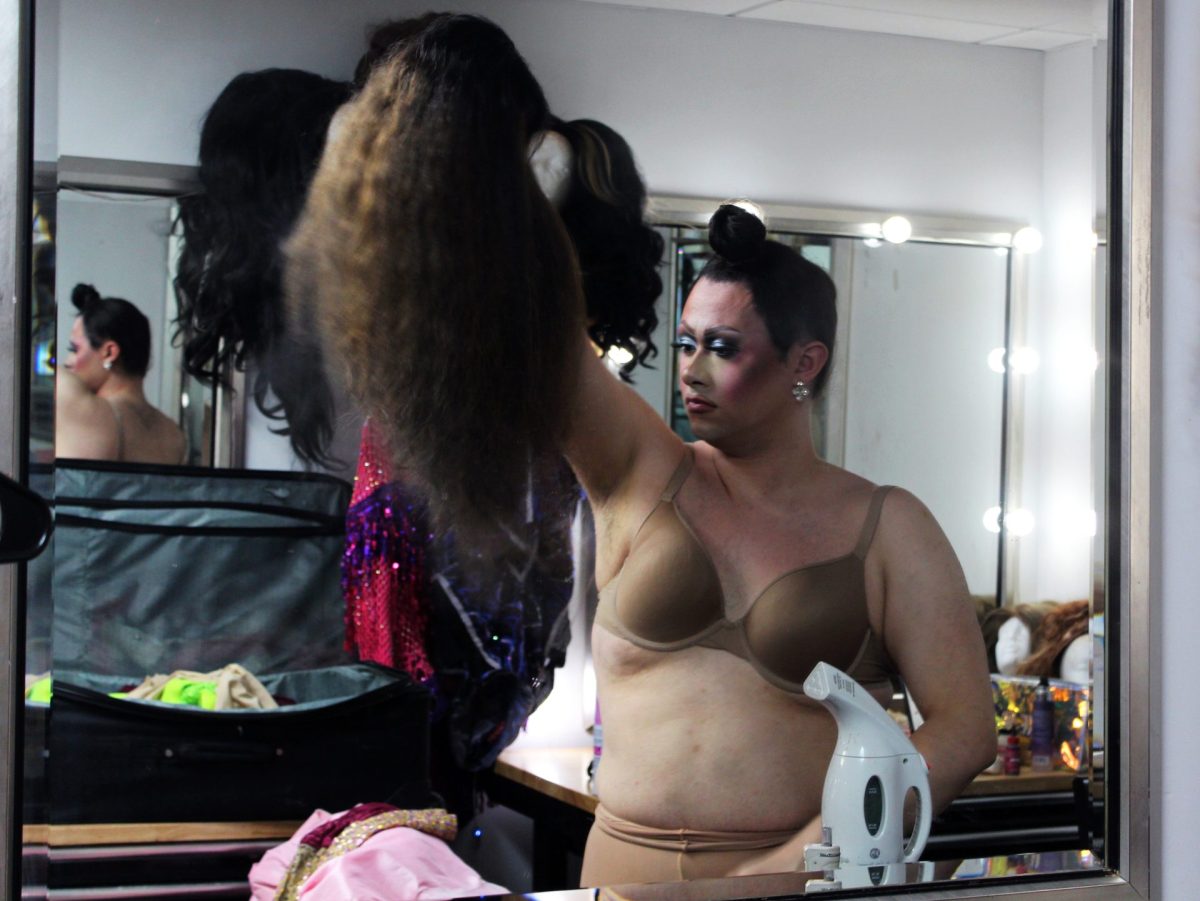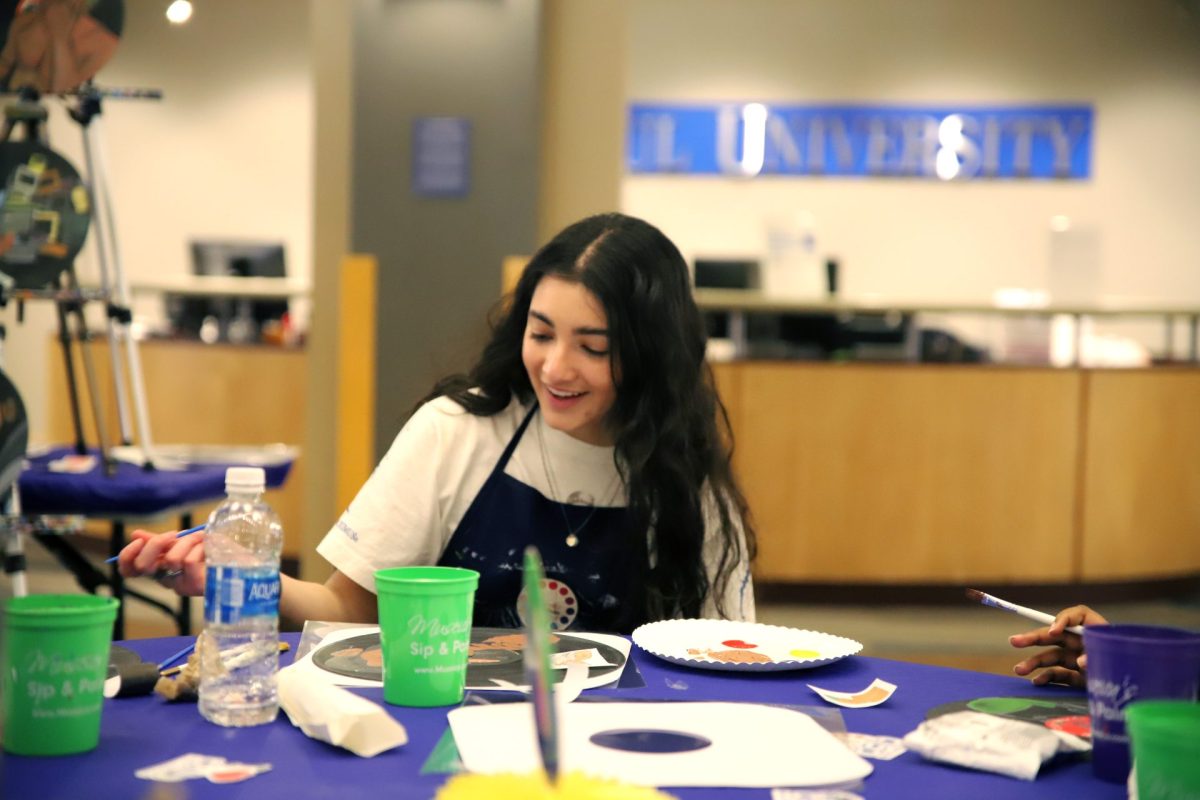The DePaul Theatre Company is tackling its newest challenge in its performance of the play “Eurydice.” “Eurydice,” written by Sarah Ruhl, is based off of the Greek myth of Orpheus and covers serious topics including love, family, and death.
“‘Eurydice’ is about a young woman who is beginning to foster her own sense of independence and freedom as she explores love and family,” director Michael E. Burke said.
Burke’s resume is vast, including serving as associate artistic director of NoExit Performance and the creative director of Indianapolis’ Young Actors Theatre. His experience with other shows, including Crime and Punishment through the DePaul Theatre School, has prepared him to direct this moving production.
The story of “Eurydice” is rooted in the Greek myth of Orpheus, a musician married to the beautiful Eurydice. Eurydice is fatally bitten by a snake, causing Orpheus to travel into the Underworld to retrieve her and bring her back to life under the one condition that Orpheus may not look back at Eurydice’s face until their arrival back on Earth. He looks back too early, however, and forever loses Eurydice.
In the play, Eurydice is drawn away from her wedding with Orpheus by a Nasty Interesting Man and ends up dying. Her father greets her in the Underworld, until Orpheus comes to rescue her. He fails, as in the myth, cause her to end up completely alone and left to make her own decisions.
Alexis Lane, a DePaul student, is excited to see the connections between “Eurydice” and its Greek roots.
“The story is very original, and I love Greek mythology,” she said. “I want to see something modern and more relatable. It’s a hero’s tale, and who doesn’t love a hero’s tale?”
Though the story is rooted in the story of Orpheus, it also has its differences.
“Where the play diverts from the myth is a more independent heroine (Eurydice) who makes a decision regarding her fate, not letting the men in the story make her choices for her,” Burke said. He noted Eurydice’s independence and her decisions to make her own choices throughout the play, rather than allow for her husband to speak for her.
Burke has a personal connection to “Eurydice,” contributing to his decision to select this play.
“My father is suffering from the same type of cancer that Sarah Ruhl’s father died from. He was very much the inspiration for her writing this play, and my father was on my mind through every step of this process,” he said. “The inclusion of the scenes with the father pull from Ruhl’s experience with her father.”
“Call your kids, tell them you love them. Call your parents, tell them you love them. From our first steps we walk towards unknown future,” Burke writes in his director’s note. This note portrays the message that “Eurydice” conveys, relating back to the themes of both love and loss.
Putting together such an emotional performance takes time.
“We began the design process long before the rehearsal process in the middle of March,” Burke said. “We had about five weeks of rehearsal in the rehearsal room and about two weeks of tech in the theatre before opening night.”
Chloe Schweizer, assistant stage manager, noted the long rehearsal hours.
“It was difficult managing time between school and production work,” she said. “Classes start pretty early and rehearsals end fairly late.”
Though it was overwhelming at times, Schweizer also appreciated the new experience. “I really enjoyed being able to work with people who I might ordinarily not get to know, especially since the actors in the show are all upperclassmen.”
As an assistant stage manager, Schweizer’s list of duties included managing the behind-the-scenes work of both props and people.
“I’m responsible for tracking and managing props during rehearsals. During shows, I manage backstage and lead the crew.”
Schweizer herself describes the show as “fairly abstract” and also notes the importance of the script being rooted in the memory of Ruhl’s father.
“(The show) follows Eurydice through her death and transition into the underworld, exploring the conflict between Eurydice’s desire to return to the world of the living to find her husband and her desire to stay in the land of the dead with her father.”
This conflict represents difficult decisions ordinary people face in their day-to-day lives. Burke encourages students to view “Eurydice.” “ A college audience is a great age for this play,” he said.
“She inhabits a space that we are all familiar with: uncertainty, not knowing who we are, where we’re going, or how to get there,” Burke said.
“Eurydice” will be performed in the Healy Theatre inside the Theatre School on DePaul’s campus until Oct. 30. Performances will be held at 7:30 p.m. through Saturday, Oct. 29, and 2 p.m. on Sunday, Oct. 30. Tickets can be bought via the Box Office at (773) 325-7900.







